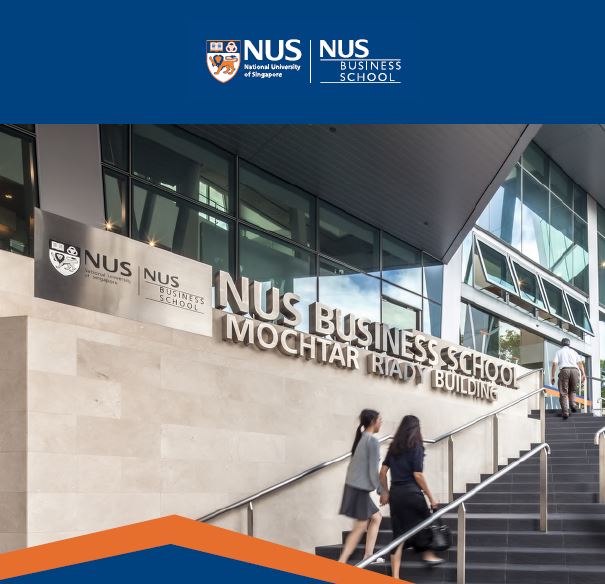HR Leadership and Employee Well-being (Garima)

According to an article by National University, the human resources leader is a key link between management and the employee workforce and excelling in a human resources career means honing your leadership qualities and skills. This course provides an understanding of the HR leadership required in the workforce of the future by becoming a values-based leader and focusing on culture and communications to inspire the workforce. The course emphasizes upon the significance of mentorship and executive presence, and strategies of leading in uncertain times. The course provides an understanding of how HR leaders can focus on enhancing and ensuring productivity for the workforce.
Course Learning Objectives:
- Learn the concepts of how leaders can be assessed in an organization with different methods such as 360 Degree Feedback, 5 levels of leadership etc.
- Acquire an understanding of what the HR leadership looks like for the workforce of the future.
- Understand the value-based leadership, role of HR leaders in shaping the organizational culture and communications.
- Gain an understanding of the concepts of mentoring and reverse mentoring and learn the skills and steps required to implement them.
- Learn the importance of communication and influence in the hyperconnected world and steps to implement them.
- Build an understanding of leadership, principles, and strategies to manage uncertainty .
- Learn the concepts of executive presence and its core elements to increase impact as a leader.
- Gain an understanding of HR essentials for driving well-being to enhance employee productivity.
Faculty

Prof Michael Jenkins
CEO, Expert Humans Pte Ltd
Michael Jenkins teaches in the NUS Executive MBA programme and is Chief Executive Officer of management consulting firm Expert Humans. Michael has successfully led Leadership Development as CEO of Roffey Park Institute (UK/Singapore); Managing Director of the Center for Creative Leadership (CCL) – Asia Pacific; Director, INSEAD Executive Education (Asia) and CEO of the Human Capital Leadership Institute (HCLI).
Throughout his career, he has played a hands-on role in directing research and has been a key contributor and thought leader in the topic areas of organisational resilience, compassionate leadership, and developing more humane and productive workplaces. Michael has also worked closely with UK public health organisations to promote better mental health at work and is active in promoting sustainable business leadership. He works closely with HR Institutes and Think-Tanks such as CIPD (UK and Asia), AHRI (Australia), IHRP and SHRI (Singapore).
The UK’s HR Magazine named Michael as one of the UK’s Most Influential Thinkers in Human Resources in 2013 and again in 2016. He recently joined the UK-based FutureWork Forum (which explores the working world of tomorrow) as a Partner. Recent articles (2020/21) include: Finding Simplicity in Chaos: Beyond VUCA; The Chair-CEO relationship–Time to Dial Things Up; CHROs during COVID and beyond: A Resource for CEOs Hidden in Plain Sight and Should the CHRO become part of a Chair-CEO-CHRO Super Trio?
Syllabus
- Leadership in the Most Uncertain World
- Leadership Communications
- Leading in Uncertainity / Crisis
- Negotiations
- Influence and Persuasion
Learning Objectives:
- Develop a keen sense of what leadership looks like in a VUCA world.
Module Components:
Video Lectures:
- Understanding the VUCA Acronym
- Leadership Principles in a VUCA World
- Leadership Skills in a VUCA World
- Adaptive Leadership Framework
- The Seven C’s of Leadership During the COVID-19 Crisis
Readings:
- Leadership in a VUCA World: A Military Perspective
- Strategies for Leading Through Uncertainty
- Dimensions of Adaptive Leadership
- Systems Leadership for Tackling Complex Challenges
- Leadership in VUCA World: A Case of Lenovo
- Attacking Uncertainty: Interview with Ram Charan
Quiz:
- Leadership in the Most Uncertain World
Learning Objectives:
- Explore a range of communication skills and styles for leaders and their importance.
Module Components:
Video Lectures:
- Why is Effective Communication Important for Leaders
- Key to Powerful Leadership Communication
Readings:
- Essential Leadership Communication Skills
- Communication Styles For Effective Leaders
- Leadership Self-Assessment: How Effective Are You?
- Communication Assessment Sample
Quiz:
- Leadership Communications
Learning Objectives:
- Build an understanding of how leaders are thriving in a gig economy and Covid-19 crisis.
Module Components:
Video Lectures:
- How Crises Created Opportunities for Good Leadership
Readings:
- Thriving in the Gig Economy
Quiz:
- Leading in Uncertainity / Crisis
Learning Objectives:
- Learn the fundamentals of negotiations through examples and frameworks.
Module Components:
Video Lectures:
- What is Negotiation?
- Types of Negotiations
- The Principle of the Divided Cloth
- What is the Pie?
- Shapley Value
- Example – Airline Cost Sharing
- The Best Alternative to a Negotiated Agreement (BATNA)
- Reservation Point and Bargaining Range
- Distributive Negotiations
- Bargaining Techniques in Distributive Negotiations
- Integrative Negotiations
- Bargaining Techniques in Integrative Negotiations
- Intercultural Negotiations
Readings:
- What is the Zone of Possible Agreement (ZOPA)
- How to Find the Zone of Possible Agreement (ZOPA)
- Proven Strategies for Success in Distributive Negotiations
Quiz:
- Negotiations
Learning Objectives:
- Learn the science behind influence and persuasion, and the difference between the two.
Module Components:
Video Lectures:
- What is Persuasion?
- The Difference Between Persuasion and Negotiation
- How to Influence Different Types of Individuals
- Difference Between Persuasion and Influence
- An Example – Persuasion and Influence
Readings:
- What is Influence?
- A Framework for Building Influence at the Workplace
Quiz:
- Influence and Persuasion
